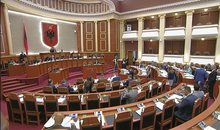
LDK addresses the Constitutional Court for the continuation of the constitutive session after the verdict
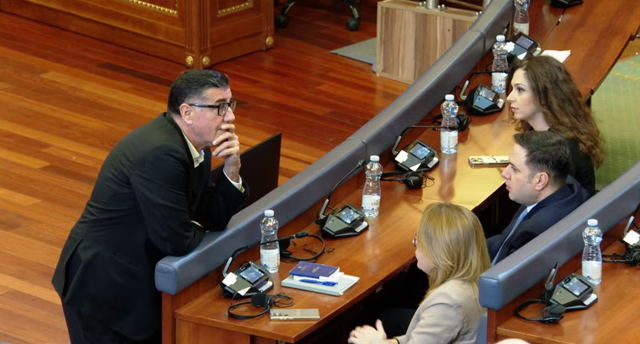
The Democratic League of Kosovo has asked the Constitutional Court to clarify the constitutional norms and rules of procedure of the Assembly of Kosovo regarding the continuation of the constitutive session from June 29, following a verdict by the country's highest court.
The LDK – which came third in the parliamentary elections – believes that the recent extensions of the constitutive session were made “in complete contradiction” with the Constitution of Kosovo and the findings of the Constitutional Court’s June 26 ruling.
Speaking to journalists after submitting the case to the Constitutional Court, Shkëm Manaj said that the chair of the constitutive session should conduct the session in accordance with the agenda, not requiring a secret ballot for the appointment of the Speaker of the Assembly.
"There is no political will that can change the agenda of the constitutive session because this is determined by the rules of procedure of the Assembly and the Constitutional Court has assessed that this act is subject to a constitutional review," said Manaj.
LDK is the second party, after the Democratic Party of Kosovo (PDK), to address the Constitutional Court regarding the continuation of the constitutive session following the Constitutional Court's ruling from June 26, which, among other things, ordered the deputies to convene the Assembly within 30 days.
The Constitutional Court has 60 days to respond to the LDK's request, but Manaj said he hopes she will respond before July 26 - which is the deadline set by the country's highest court for the constitution of the Assembly.
The chairman of the constitutive session, Avni Dehari – who comes from the winning party Lëvizja Vetëvendosje – requested the creation of a commission for a secret ballot for the speaker of parliament, after the LVV candidate did not receive the necessary 61 votes in several attempts at open voting.
The largest opposition parties, PDK, LDK, and AAK, oppose this method of voting and argue that the Constitutional Court's ruling does not allow such a thing and are demanding open voting.
LVV insists that the verdict allows this type of voting and does not give up.
Disagreements over the voting method have stalled the process of constituting the Assembly even four months after the elections were held.
So far, MPs have met a total of 41 times in an attempt to constitute the Assembly, but each of their attempts has lasted no more than approximately three minutes.
Earlier in the day, Kosovo President Vjosa Osmani said that her legal team has concluded that the Constitutional Court's ruling does not rule out the possibility of a secret ballot for the Speaker of the Assembly, but added that this requires the consent of all MPs in advance.
Professor Kadri Kryeziu, former vice president of the Constitutional Court of Kosovo, told Radio Free Europe on Friday that the main problem of the unconstitutionality is political and not constitutional.
He stressed that all parties bear responsibility, but most of all the winning party in the parliamentary elections – the Vetevendosje Movement. According to him, if the Assembly is not constituted within 20 days, the country will go to extraordinary elections.REL
Latest news


Trump says he's ready to raise tariffs to 70% on some countries
2025-07-04 22:35:52
Tre shenjat e zodiakut që do ‘pasurohen’ në Korrik
2025-07-04 22:05:09
Gaza War: Hamas Accepts US Proposal for 60-Day Ceasefire
2025-07-04 21:50:10
Autocracy in Albania, Fuga: Governance has gotten out of control
2025-07-04 21:40:51
Meta: Agriculture on credit, the new fraud!
2025-07-04 21:26:39




Vote recount in Durrës ends without changes
2025-07-04 20:12:54
Gas station explodes in Rome, 25 injured (VIDEO)
2025-07-04 20:00:20

These afternoon habits often sabotage weight loss
2025-07-04 19:39:28
Former Arsenal player Thomas Partey accused of rape
2025-07-04 19:24:21
Shepherd disappears without a trace in Delvina
2025-07-04 19:14:31

Bardho gave Zegjine's mandate/Braho: Unfair! It violates the electoral system
2025-07-04 19:01:08


Rapid developments in the Sultanates!
2025-07-04 18:00:06



Italy tightens rules for skateboard traffic
2025-07-04 17:20:18

Unusual for the time, dense fog covers the coast of Vlora
2025-07-04 16:48:01


Accident on the Shkodra-Lezhë axis, one dead and 3 injured
2025-07-04 16:14:19
Albania with fewer requests for asylum and Albanian citizenship in 2024
2025-07-04 16:06:57

Albania last for quality of life, DP: Technical government is the solution!
2025-07-04 15:42:30
Nico Williams says "No" to Barcelona, signs with Athletic Club until 2035
2025-07-04 15:33:35
Fires in the country, four fires are still active, what is the situation?
2025-07-04 15:24:20

Summer brings big changes for these 4 zodiac signs
2025-07-04 15:00:04
Osmani: MPs need to agree to a secret ballot for the Speaker of Parliament
2025-07-04 14:51:09
Serious accident on the Peqin-Elbasan axis, two injured
2025-07-04 14:37:56

GJKKO leaves in force the security measure for the head of the KPP
2025-07-04 13:58:17
Who will replace Ilir Meta and take over the leadership of the PL?
2025-07-04 13:50:36
Berisha: Dismissal of directors in Vlora, another act of 'scapegoats'
2025-07-04 13:41:46




Librazhd/ In a serious psychological state, the young man consumes pesticides
2025-07-04 13:05:07


Weapons trafficked from Kosovo to Albania, two arrested, 8 pistols seized
2025-07-04 12:33:28
Konsumimi i tepërt i çokollatës, ja cilat janë dëmet që shkakton në organizëm
2025-07-04 12:23:35

Fires in the country, 21 fires in the last 24 hours, 4 still active
2025-07-04 12:00:19
WB calls for debt transparency: Albania to publish details of every loan
2025-07-04 11:50:05
Changes in the State Police, new names expected to lead 5 police stations
2025-07-04 11:40:06

The race for the head of the BKH, the third phase on July 11
2025-07-04 11:20:23

Toxic phrases that show your relationship is in trouble
2025-07-04 11:00:10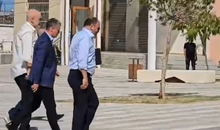

2 brothers arrested in Roskovec, cultivating narcotic plants
2025-07-04 10:38:08

Celebrating his 61st birthday today, Rama is surprised at the pink headquarters
2025-07-04 10:21:46
Suspended from duty 4 days ago, Jonaid Myzyri appears before the Criminal Court
2025-07-04 10:16:27
Heat wave/ 5 deaths in Italy from high temperatures
2025-07-04 10:07:55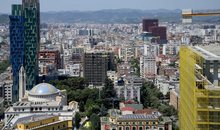
Economy slows, telecommunications joins agriculture and industry in recession
2025-07-04 09:58:13


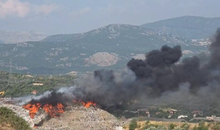
Fire continues at Elbasan incinerator, toxic smoke endangers citizens' health
2025-07-04 09:19:06
The USA celebrates its 249th anniversary of Independence
2025-07-04 09:09:22
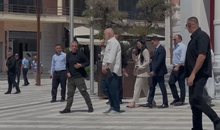
After Rama's ultimatum, all directors of the Vlora municipality resign
2025-07-04 08:46:30
Russia, the first country in the world to recognize the Taliban government
2025-07-04 08:37:20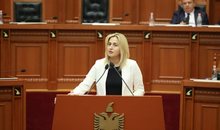
10 facts about the 10th legislature!
2025-07-04 08:21:35
Foreign exchange/ How much foreign currencies are bought and sold today
2025-07-04 08:01:50

Weather forecast for today
2025-07-04 07:36:43
"Don't be afraid", here's what the stars have predicted for each sign
2025-07-04 07:21:48
Morning Post/ In 2 lines: What mattered yesterday in Albania
2025-07-04 07:03:17
Bushati: Zegjineja, a book piloted by Rama
2025-07-03 22:57:30


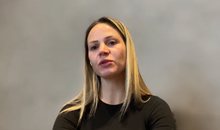

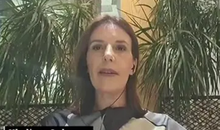

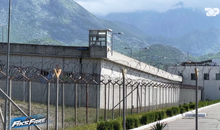

Greece imposes fee to visit Santorini, how many euros tourists must pay
2025-07-03 20:50:37
Don't make fun of the highlanders, Elisa!
2025-07-03 20:43:43
Gunfire in Durres, a 30-year-old man is injured
2025-07-03 20:30:52

The recount in Fier cast doubt on the integrity of the vote
2025-07-03 20:09:03


